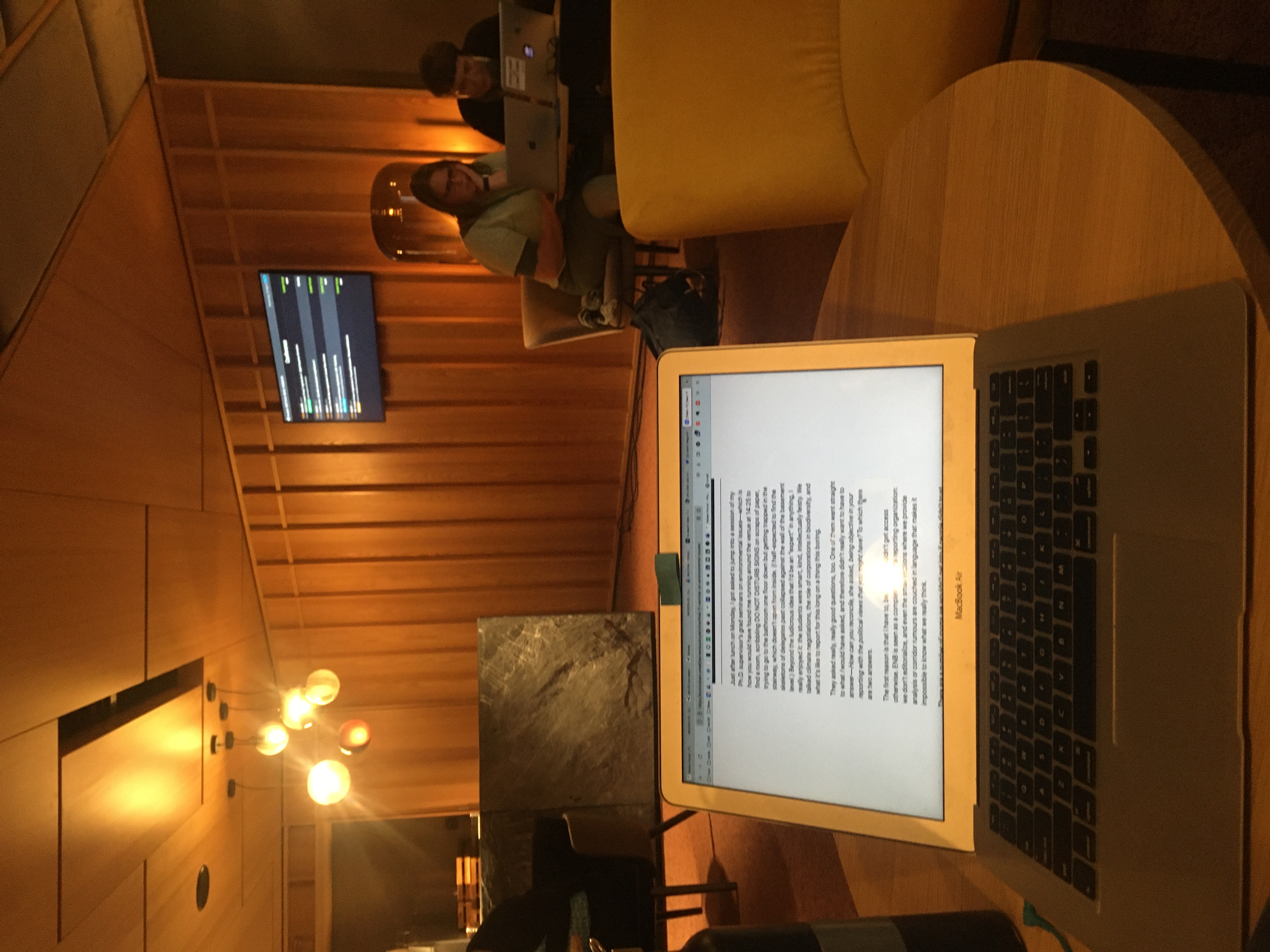[FMAL-12] Stocktake, reassuredfeel
Take a breath, dear reader. Let’s just sit down and review where we’ve been. Reflect on some beautiful memories. And let’s make incredibly complicated diagrams about it, just for the fun of it. Doesn’t it feel better now? Thank God we took a moment for Fondue, and Maybe a Lake—with me, your co-facilitator, Bernard Soubry
—
Yesterday: a stocktake plenary to start the day.
Wednesday @UNBiodiversity starts with one big status update. Lots done, but lots yet to do for the post-2020 #biodiversity framework. 🧵: pic.twitter.com/8b4Z6AJnqZ
— Earth Negotiations Bulletin (@IISD_ENB) March 23, 2022
These usually happen either at some pre-arranged midpoint in a conference, to let everybody know where we’re at, or else whenever the organizers feel like we’re so far up the creek without a paddle that we need a kick to get us back on the road. You usually can’t tell which one it is until they’re over; yesterday, it was clearly both.
Here’s how it works: the presiding body/flashiest person makes some introductory statements about how we’ve all worked very hard, and we need to get somewhere because of the obvious need to stop, say, killing a bunch of species indiscriminately. Then all the subsidiary bodies give a sense of what’s going on with them, what items on the agenda are ready for approval and which ones are on life support. Then everyone says that we really should move faster, or else we risk abject failure and humiliation in front of the whole world/future generations/the media. And then the fancy person from the start sends us all off with something like, “I know we can do it, we just need to [action verb], and make sure we [UN word for “stop talking so much”]. For the [environmental process]!”
Which, reader, is how it went yesterday. The Chinese representative (China is the president of the COP this time around) said hi. All of the subsidiary bodies reported back. The prognosis is… well, everything is going very slowly right about now. Maybe a third of the different contact groups that are meeting have gotten anything past the finish line. The rest… well, there’s been a lot of [UN word for “talking a lot”].
If you take it at face value, it means that we spent a week talking and absolutely nothing happened. Which would be terrifying.

But it’s useful to remember here that there’s a long-established rhythm to negotiations, especially if they’re environment-based, and especially if they’re about actually achieving anything. It’s been the same for pretty much thirty years, and it’s based on the fact that, as a governance body, most environmental fora are collectively a teenager with a homework assignment. Sure, everyone theoretically wants to get the homework done, but right now, there’s, like, so much time before it’s due, and anyways, wouldn’t it be more fun to just make sure we have a bunch of national interests represented?
The endgame to this—barring any genuine, metaphor-destroying, catastrophic failures—is that now, with little more than a week left to go before the final plenary, things are actually going to get serious. The next week will be a lot of contact groups and—for the ones who can’t agree—informal Friends of the Chair groups; and lots of very late-night conversations in corridors and on WhatsApp chats.
It might go late into the night, it might not look that good by the time it’s handed in, but some kind of agreement will happen. Because, much like the people who work best with deadlines, the CBD does its best work—or its most effective work, for better or for worse—a couple of minutes before the bell rings.
This isn’t a good rhythm, or a healthy one. You might even say that this is the kind of rhythm that teaches some teenagers that the deadline is the only thing that matters, not the work itself. That maybe what would help would be to learn how to be constructive most of the time, and then have some time for showing off afterward.
But the CBD aren’t a clumsy metaphor, and long, historical rhythms are hard to break. So it was kind of reassuring to see the stocktake yesterday, in a way. Things need to follow that rhythm for the long arc of incremental progress to happen within this tiny little institution within a very large world.
So: A little reassurance that we’re at least on the same kind of track we’ve been on before. For better or for worse, we know how it ends. Whether that's enough... well. For another newsletter.
Hoping for a decent ending,
B
PS: Just to say: I'm deeply grateful for you guys. This is past the midpoint, I think, and has already shown me just how useful an experience this kind of writing can be: getting to think outside the negotiations and just put stuff out there is mind-expanding and a nice distraction and a good link to the people I really want to write to. Thanks for indulging me.